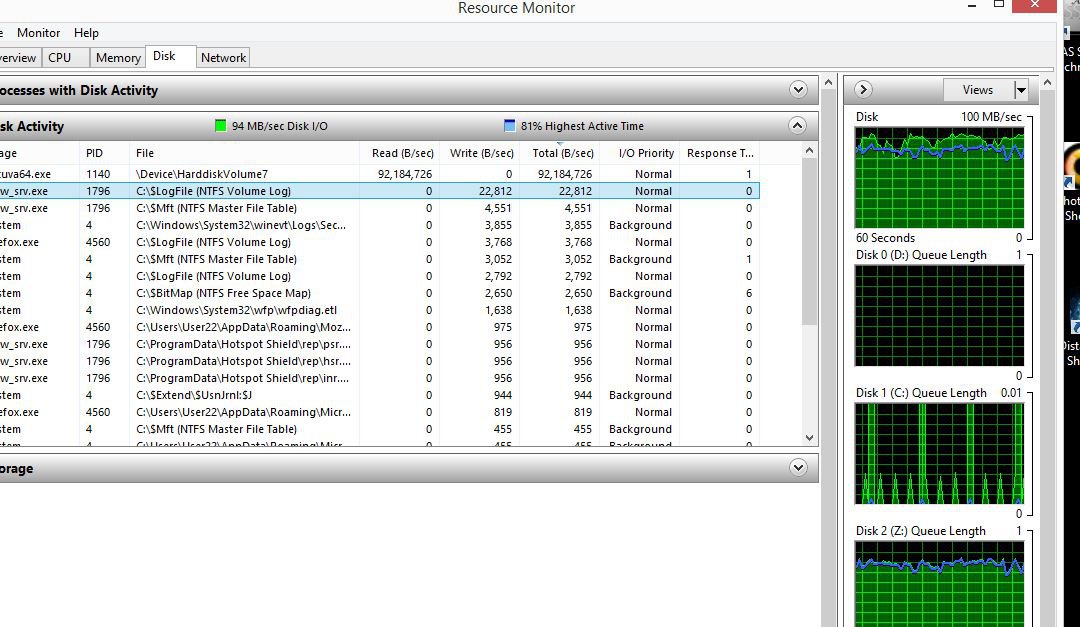brooksndun
New Member


- Messages
- 884
Hi,
Just was noticing this as I was going through my Resource Monitor,
Is there a way to disable all the small little writes that windows is doing to create log files?
I'ts probably not a big deal but I am not using windows for any IT reason, server work, or even school, or anything actually important.
-I use "this specific" computer to just browse the internet leisurely and play games.. so i just want it to do nothing but be able to watch movies,play games, and use the internet.. i don't care about absolutely anything else.
Which is why i am curious to disable logging as I won't be doing any troubleshooting on this machine.. if i have a problem i just reinstall windows and start over etc..

Just was noticing this as I was going through my Resource Monitor,
Is there a way to disable all the small little writes that windows is doing to create log files?
I'ts probably not a big deal but I am not using windows for any IT reason, server work, or even school, or anything actually important.
-I use "this specific" computer to just browse the internet leisurely and play games.. so i just want it to do nothing but be able to watch movies,play games, and use the internet.. i don't care about absolutely anything else.
Which is why i am curious to disable logging as I won't be doing any troubleshooting on this machine.. if i have a problem i just reinstall windows and start over etc..

My Computer
System One
-
- OS
- windows 8.1
- Computer type
- Laptop
- System Manufacturer/Model
- Lenovo g750
- CPU
- i5
- Motherboard
- Some Chinese Crap..
- Memory
- 8
- Graphics Card(s)
- Nvidia 755
- Antivirus
- Windows Defender





